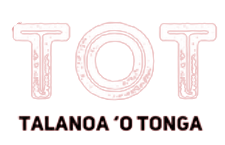Slapping the King’s Hand
While democracy is an evolving process that requires careful navigation, the radical stance of figures such as Lopeti Senituli, Ikani Taliai, and Filia (Phil) Uipi threatens to hinder the progress made through thoughtful and pragmatic leadership.
Most concerning is the recent rhetoric from Phil Uipi, who, in an interview with Radio TV Tonga International, urged the people’s representatives to stand against the King in their constitutional rights. His use of the Tongan metaphor—”taa’i e nima ‘oku toutou ala maí” (slap the hand that keeps on touching their rights)—is inflammatory and dangerously divisive. Such language does not foster constructive dialogue but instead promotes an adversarial approach that could destabilize the country.
Calling for the complete removal of the King’s executive powers ignores the complexities of Tonga’s constitutional framework and the foundational role of the monarchy in Tongan society.
The Dangers of Conflict and Misinterpretation
Last night, I read with my kids Proverbs 17:19, which says, “Ko ia ʻoku manako ki he feʻiteʻitani ʻoku ʻofa ia ki he kovi: pea ko ia ʻoku hiki hake hono matapā ʻoku kumi ʻe ia ki he fakaʻauha.” I was thinking of these three critics’ extreme approaches to democratic reforms and inflammatory language. Their approach contradicts the wisdom found in scripture, where conflict and aggression only lead to destruction rather than meaningful progress.
Adding to their misguided approach is their misinterpretation of the 2010 Constitutional Reform. Senituli, Taliai, and Uipi argue that the King’s interventions last year were unconstitutional, claiming that he overreached by withdrawing his consent from the Minister of Defense and the Minister of Foreign Affairs. However, they conveniently focus only on Clause 51(1) of the Constitution of Tonga while ignoring Clause 51(7) and Clauses 36, 39, and 40, which affirm the King’s authority over foreign affairs and defense. Their selective reading of the Constitution not only misrepresents the legal framework but also misleads the people into believing that the King’s actions are unlawful when, in reality, they are well within his constitutional rights. They misread the Constitution and misled the people.
Another example of extremism is the TU faction, a group of extremist pro-monarchy supporters who focus on discrediting democratic reforms. Just as radical pro-democracy advocates seek to strip the King of his authority, the TU faction seeks to halt all democratic progress, resisting any change that might modernize Tonga’s governance. This highlights the need to avoid both extremes and seek a balanced path forward.
The Path of Wise Leadership
By contrast, the more measured leadership of Siaosi Pōhiva and Piveni Piukala offers a model for democratic reform that acknowledges the necessity of avoiding radical democratic change while working within the current system, as Siaosi explained to Setita during their interview on Radio TTI last night. These leaders understand that the path to meaningful change is not through outright confrontation but through strategic engagement and gradual reform. They recognize that democracy in Tonga must be gradual and tailored to its unique cultural and historical context, not imported wholesale from foreign systems.
Piveni Piukala has also warned the PTOA movement that attempting to remove all of the King’s executive power is a dangerous path that could lead to bloodshed. He has reminded them that the King will not surrender all his power, and that is the brutal reality they must consider. It would be foolish to resort to Uipi’s style of violent resistance, which could bring unnecessary conflict rather than meaningful progress.
The Importance of Non-Violent Resistance
The extremists of the pro-democracy movement like Phili Uipi must embrace non-violent resistance as a means of enacting change rather than resorting to threatening methods that contradict the nation’s Christian heritage. The use of violence in political discourse harks back to a dark age that has no place in modern Tonga. A nation rooted in faith and respect should not be swayed by aggressive rhetoric but should seek reforms through peaceful dialogue and ethical leadership. By promoting non-violent resistance, Tonga can preserve its cultural integrity while advancing democratic values in a way that unites rather than divides.
A Call for Wisdom and Unity
The future of Tonga’s democracy depends on leaders who are willing to adapt to the needs of the time rather than cling to rigid ideologies. It is time to reject extremism in favor of a wise, thoughtful approach that respects both democratic principles and Tonga’s deep-rooted traditions. Only by working together—rather than against one another—can we build a stronger, more just society for all Tongans.
Reform the System, Transform the Hearts.
Mr. Senituli Penitani is a John Maxwell leadership trainer and coach living in Utah. The views expressed in this article are his and do not necessarily reflect the views of Talanoa ‘o Tonga.




